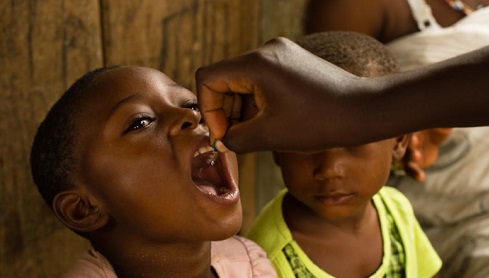
UNICEF report laments child vaccine intake perception
A new report by UNICEF has revealed that the perception of the importance of vaccines for children declined by more than 33 per cent in Ghana and in four other countries after the onset of the COVID-19 pandemic.
Advertisement
The other countries are Korea, Papua New Guinea, Senegal and Japan.
The new data, collected by The Vaccine Confidence Project and published by UNICEF, said China, India and Mexico were the only countries studied where the data indicated that the perception of the importance of vaccines held firm or even improved.
“In most countries, people under 35 and women were more likely to report less confidence about vaccines for children after the start of the pandemic.
“Vaccine confidence is volatile and time specific. Additional data collection and further analysis will be required to determine if the findings are indicative of a longer-term trend,” UNICEF’s flagship report, The State of the World’s Children, said.
World’s children
The 2023 edition is the first edition of the report solely dedicated to routine immunisation.
UNICEF reaches almost half of the world's children every year with life-saving vaccines.
The report, released on Thursday, April 20, said despite the falls, overall support for vaccines remained relatively strong, adding that in almost half the 55 countries studied, more than 80 per cent of respondents perceived vaccines as important for children.
Quoting the Executive Director of UNICEF, Catherine Russell, the report said despite historic achievement made by scientists at the height of the pandemic to rapidly develop vaccines that saved countless lives, fear and disinformation about all types of vaccines circulated as widely as the virus itself.
Describing the data as a worrying warning signal, she said they could not allow confidence in routine immunisations to become another victim of the pandemic, otherwise the next wave of deaths could claim more children with measles, diphtheria or other preventable diseases.
Pandemic interruption
It said the pandemic interrupted childhood vaccination almost everywhere, especially due to intense demands on health systems, the diversion of immunisation resources to COVID-19 vaccination, health worker shortages and stay-at-home measures.
“Today’s report warns that a total of 67 million children missed out on vaccinations between 2019 and 2021, with vaccination coverage levels decreasing in 112 countries. Children born just before or during the pandemic are now moving past the age when they would normally be vaccinated, underscoring the need for urgent action to catch up on those who were missed and prevent deadly disease outbreaks,” it said.
The report said in 2022, the number of measles cases was more than double the total in the previous year, while the number of children paralysed by polio went up 16 per cent year-on-year in 2022.
It stressed that there was an eight-fold increase in the number of children paralysed by polio between 2019 to 2021 as compared with the previous three-year period, highlighting the need to ensure vaccination efforts were sustained.
To address this child survival crisis, UNICEF called on governments to double-down on their commitment to increase financing for immunisation, and to work with stakeholders to unlock available resources, including leftover COVID-19 funds to urgently implement and accelerate catch-up vaccination efforts to protect children and prevent disease outbreaks.
It further called on them to urgently identify and reach all children, especially those who missed vaccinations during the COVID-19 pandemic and to strengthen demand for vaccines, including building confidence.




